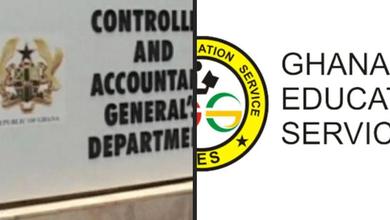2024 UK Teachers Salary per Hour / Month for Primary and Secondary Schools
UK Teachers Salary per Hour / Month for Primary and Secondary Schools
If you’re a primary or secondary teacher in England, your salary will depend on the type of school you work in, where the school is, and the pay range you’re in.
The pay ranges below apply to maintained schools (schools funded by local authorities).
Non-maintained schools (for example, academies, independent schools, and private schools) can set their pay but often follow these pay range
In England and Wales, you’ll start at the lowest point of the main pay scale for classroom teachers, which ranges from £28,000 to £34,502 depending on location. The Scottish equivalent is a probationer, who is initially employed on a probationary contract. The current probationer’s salary is £27,498. In Northern Ireland, the minimum salary on the main pay scale is £24,137. There are opportunities for regular pay raises as you develop your skills and performance in the classroom. The pay scales for qualified teachers are split into main and upper pay ranges teachers are promoted up the scales in line with excellent performance. These ranges, from the main rate to the highest upper rate, differ between countries across the UK:
Primary and secondary teacher salary
If you have qualified teacher status (QTS), you’ll get a minimum starting salary of £30,000 (or more in London) as a primary or secondary school teacher in England.
What is the quickest way to become a Secondary School Teacher in the UK? / Salary
Your salary will be reviewed every year, with most teachers moving up the pay range annually. This will depend on your school’s performance management arrangements.
A typical teacher could earn at least £41,333 (or more in London) within 5 years.
Qualified teacher salary
Area Minimum and Maximum
England (excluding London) £30,000 £46,525
London fringe £31,350 £47,839
Outer London £34,514 £51,179
Inner London £36,745 £56,959
Additional payments
You may also receive additional payments on top of your regular salary for taking on extra responsibilities.
This could be a one-off payment for a specific project, for example, creating a timetable.
Or it might be an extra responsibility attached to your job role, for example, being the head of the department.
Depending on your responsibilities, you could earn up to an extra £15,690. Your school will determine how much you receive.
Career progression
Leading practitioner salary
Some schools also have a leading practitioner pay range for teachers with exemplary teaching skills who lead the improvement of teaching in their schools.
What this will involve will depend on your school, but could include:
coaching and mentoring other teachers, including trainees and early career teachers
undertaking a national professional qualification (NPQ)
supporting your school with plans to reduce workload
Area Minimum and Maximum
England (excluding London) £47,417 £72,085
London fringe £48,723 £73,393
Outer London £51,179 £75,850
Inner London £56,377 £81,051
Headteacher salary
You could also go into a leadership position, such as a headteacher.
A headteacher is the most senior person in a school. They are ultimately responsible for all teachers and pupils.
Their role is wide-ranging but includes leading and motivating teachers, and ensuring all pupils get a good education.
Area Minimum and Maximum
England (excluding London) £53,380 £131,056
London fringe £54,685 £132,352
Outer London £57,124 £134,765
Inner London £62,304 £139,891
If you do not have qualified teacher status (QTS)
You need qualified teacher status (QTS) to work in maintained primary, secondary, and special schools in England.
If you do not have QTS (for example, if you just have a PGCE), you can work in some schools as an unqualified teacher.
This means you will be in a lower pay range and will not be entitled to the same benefits as a teacher with QTS.
If you’re already working as an unqualified teacher and have the right experience, you could be eligible for the assessment-only route to qualified teacher status (QTS).
Or find out how you can earn an unqualified teacher salary while training to get QTS on a salaried teacher training course.
Unqualified teacher salary
Area Minimum and Maximum
England (excluding London) £20,598 £32,134
London fringe £21,933 £33,464
Outer London £24,415 £35,954
Inner London £25,831 £37,362
Holidays
You’ll get more days of holiday than people in many other professions. In school, full-time teachers work 195 days per year.
For comparison, you’d work 227 days per year (on average) if you worked full-time in an office.
Teachers’ pension scheme
The teachers’ pension scheme is one of the most generous in the country and includes an employer contribution of 23.6%.
It is a ‘defined benefit’ pension and is:
based on your teaching salary rather than the amount of money you pay in
registered with HM Revenue and Customs – so your contributions are tax-free
flexible and allows you to take some of it as a tax-free lump sum
You also get other insurance benefits too.
Private school teacher salary UK
State schools administer pay based on the age and number of children enrolled in the institutionTeachers’ pay scales
Pay scales are a national system of determining how much a teacher should be paid. Outside the main scale, which outlines the pay of qualified classroom teachers, there are individual pay scales for unqualified teachers, teaching assistants and headteachers, among other roles.Upon starting a teaching role, you’ll be paid at the lowest point of its pay scale. Opportunities to receive a pay rise will become available as a result of appraisal outcomes and meeting teaching standards set by schools.
Private schools don’t follow these national pay scales, and are free to pay their teachers as they see fit. Very few private institutions advertise their pay scales publically, although if looked after by an organisation such as the Independent Association of Prep Schools or the Headmaster and Headmistresses’ Conference private school teachers can expect a pay scale similar to the state school system.On top of their basic salary, many teachers enjoy additional payments:Special education needs allowance – for working as a qualified teacher of pupils, ranging between £2,384 and £4,703 per annum






